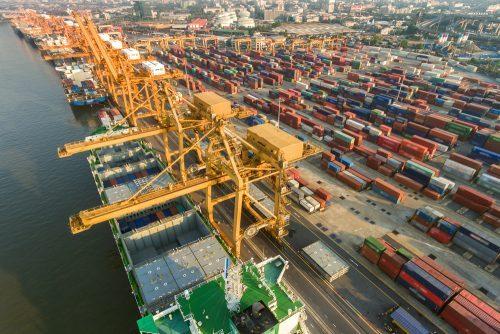May 22, 2017 | Cargo Insurance, Industry Insights
LSPs: Getting Prepared for the 2017 Peak Holiday Season

Although the peak holiday season is still months away, shippers and logistics service providers should heed the lessons of past missteps in order to ensure that the upcoming season is a happy one for their customers. It’s this very time period – the day after Thanksgiving to December 23 – that many retailers earn the majority of their annual revenue so the stakes are high for everyone involved in the supply chain.
In an article that appeared in DC Velocity, an online publication that serves the specific informational needs of logistics and supply chain managers and executives, several LSPs shared the lessons they learned from their experiences in 2016 and how they plan to proceed differently this year.
One of the challenges LSPs face in meeting peak-season demand is the need to hire additional staff to ramp up operations. This has been particularly challenging for LSPs in the wake of a growing worker shortage. One provider cited in the article has taken steps to meet the increased labor demand during the peak season by offering hiring incentives while at the same time conducting engineering studies to find ways to reduce the labor required to handle the swelling volume of e-commerce orders. The company is also looking for ways to use its warehouse and labor management software to simplify material handling tasks, streamline training for warehouse jobs, and quickly move workers to new tasks in response to changes in demand.
“You have to make sure you’re not training everyone to do everything,” said the company’s CEO. “So we use task-specific training. We bring people in and train five of them to do receiving, five to do packing, five to do shipping, and five to do basic prep and dock cleanup or whatever’s needed.”
In addition, because of a tight labor force, LSPs often find they are competing against each other for the same people. Some warehouses in order to land the best employees are offering signing bonuses and boosting the workers’ hourly rate. Many, in fact, are beginning their peak season hiring earlier in the year.
In addition to hiring more labor, renting additional warehouse space, or reserving extra trailers, accurate business forecasting is also important for LSPs to meet the increased demand. Retailers and third-party logistics providers, for example, “should review near-term key performance indicators (KPIs) and long-term business outlooks, as well as discuss the impact of business initiatives such as product launches, store openings, or sales.” By collaborating, everyone in the supply chain can react to changes and make sure products reach consumers on time, cites the article.
Some companies are also using modeling programs to run different scenarios with their partners to help find the optimal balance between cost and service. For example, notes the article, modeling could enable clients to see what would happen if they spread shipments over five or six weeks instead of two, stage certain inventory in transit, use cross-docks to handle spikes in demand, or change routes.
Flexibility is also vital especially in an environment where e-commerce patterns are constantly changing. To deal with these fluctuations, some companies rent flexible warehousing space or deploy pop-up hubs to handle overflow volume, or add more days of service, like Saturday and Sunday deliveries, to achieve better asset utilization. The best approach to managing change, according to the article, is to work closely with the small number of clients who drive the bulk of the holiday surge to avoid last-minute surprises.
Another important consideration for transportation companies and LSPs is to ensure they take the extra precautions necessary to protect cargo. The holiday peak season is marked by a significant surge in cargo theft. FreightWatch estimated that from 2010 to 2016 the transportation industry has experienced more than three thefts a day during the Thanksgiving weekend. This represents an increase of 27% over the annual average of 2.4 thefts per non-holiday days since 2010. Electronics and clothing and shoe shipments are among the increased targeted goods for cargo thieves.
Whatever strategy a company may choose to survive peak season, industry experts agree that the only constant is change and planning for the next peak season should begin on the heels of the last season.
About Roanoke Trade
Roanoke Trade is a leading provider of insurance and surety solutions for transportation and logistics providers and is committed to keeping you updated on trends and developments affecting the industry. For information about our insurance products and services, please contact one of our Roanoke Trade professionals at 1-800-ROANOKE (800-762- 6653).





